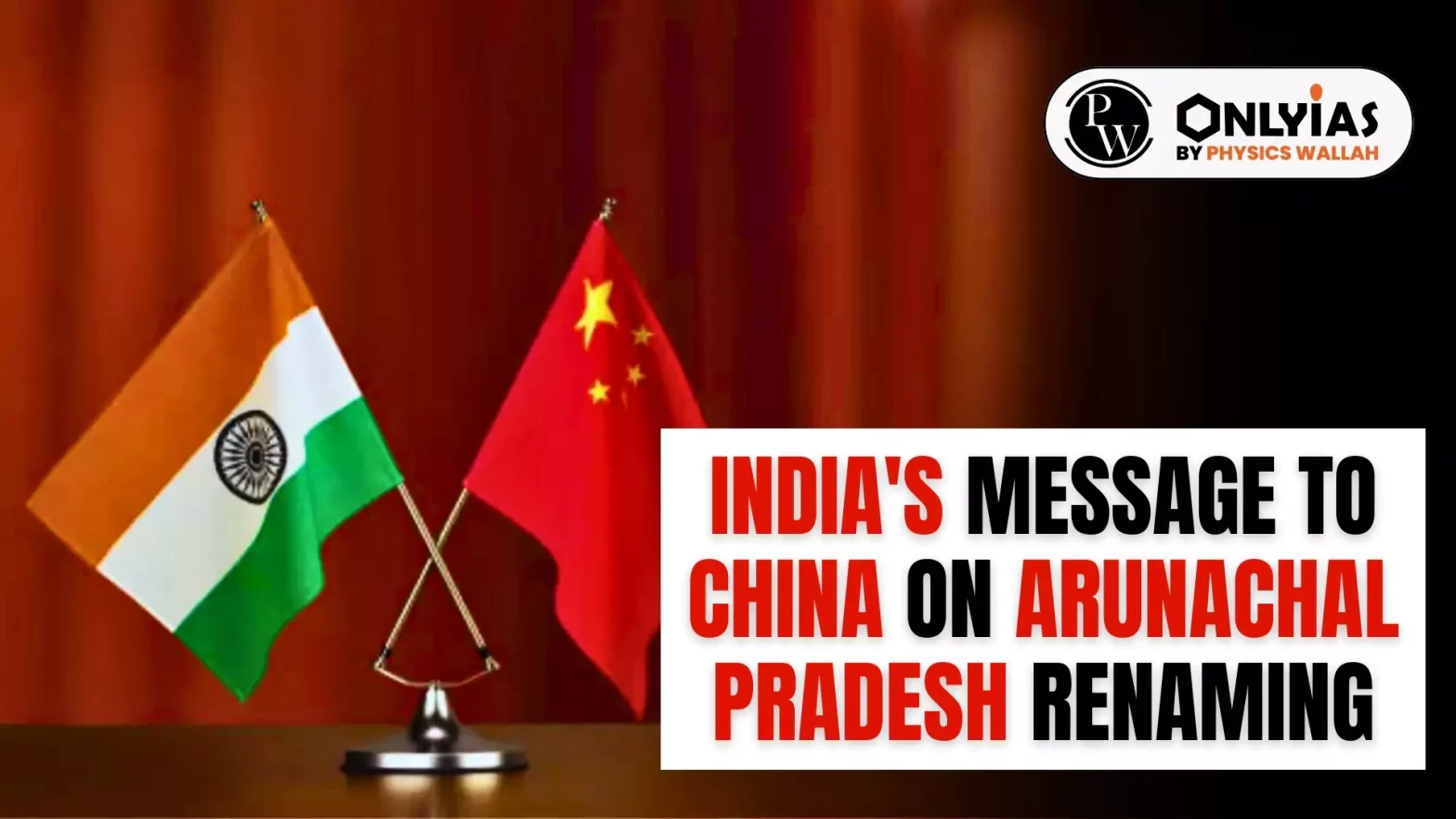Context
In response to the renaming of certain geographic features in Arunachal Pradesh by China in December 2021, some individuals on social media assigned Indian names to cities in China and Tibet.
- Ex- They referred to Shanghai as Sanghipur, Nanjing as Nandigarh, Yunan as Yananapuram, Chengdu as New Chandigarh, Hubei as Hanumangarh and Guangzhou as Gandhinagar, Beijing as Bhujang Nagar and Lhasa as Laxmangarh.
India’s Message To China On Arunachal Pradesh Renaming
-
Chinese Renaming of Arunachal Pradesh:
- The Chinese tamasha of releasing “standardised” geographical names in “Zangnan“, their name for Arunachal Pradesh, started with the renaming of six places in 2017.
- Then they added 15 places in 2021 and another 11 in 2023.
- In 2024, the list included 30 new places, among which were 11 residential areas, 12 mountains, four rivers, one lake, one mountain pass and even a piece of land.
-
Dismissal of Arunachal Pradesh Renaming Acts by India:
- The Indian External Affairs Ministry dismissed the renaming of cities by China claiming it persisted with its senseless attempts to rename places in the Indian state of Arunachal Pradesh.
-
China’s ‘Invented’ Historical Claims:
- In the case of Arunachal Pradesh, the Chinese leadership had once claimed that graves of their people’s ancestors were in that state and that the descendants should have the right to worship them.
- Such claims sound senseless and invented today but that is China’s way of using history as a weapon for expansion.
-
Strategic Approach to Addressing China:
-
- To tackle China, its civilisational character must be understood and strategically target its vulnerabilities.
- This was precisely the approach adopted by External Affairs Minister S. Jaishankar during his visit to the Philippines.
India’s Stance on South China Sea
- India earlier refused to commit itself to a role in any future conflict in the Western Pacific, much to the disappointment of its friends in the QUAD.
- However, it significantly deviated from that stance in the Philippines by assuring it that India would stand by them.
- UNCLOS 1982: It is important as the constitution of the seas. All parties must adhere to it in its entirety, both in letter and in spirit.
- Recognition of Hague Ruling and Dispute Resolution: India acknowledged the validity of the 2016 Hague-based Permanent Court of Arbitration’s ruling, which invalidates China’s claim on the Philippines’ waters.
China Reacts to India’s Stance on South China Sea
- China’s Accusation: China alleged that India’s intention was to align itself with countries involved in territorial sovereignty disputes with China aiming to forge closer relationships with them.
- Potential Consequences on India China Relations: India’s involvement in the South China Sea will have a significant negative impact on India China relations, forcing China to be vigilant against India’s potential intention to stir up more trouble.
Conclusion
India’s emphasis on a rules based international order and its commitment to peaceful resolution of disputes sets a positive tone for future interactions. By upholding principles of peace, stability, and credibility, both nations can work towards building a relationship based on mutual respect and collaboration.
Also Read: China Protests Indian PM’s Visit To Inaugurate Sela Tunnel
| Prelims PYQ (2022):
With reference to the United National Convention on the Law of Sea, consider the following statements:
1. A coastal state has the right to establish the breadth of its territorial sea up to a limit not exceeding 12 nautical miles, measured from baseline determined in accordance with the convention.
2. Ships of all states, whether coastal or land-locked, enjoy the right of innocent passage through the territorial sea.
3. The Exclusive Economic Zone shall not extend beyond 200 nautical miles from the baseline from which the breadth of the territorial sea is measured.
Which of the statements given above are correct?
(a) 1 and 2 only
(b) 2 and 3 only
(c) 1 and 3 only
(d) 1, 2 and 3
Ans: (d) |
![]() 6 Apr 2024
6 Apr 2024

